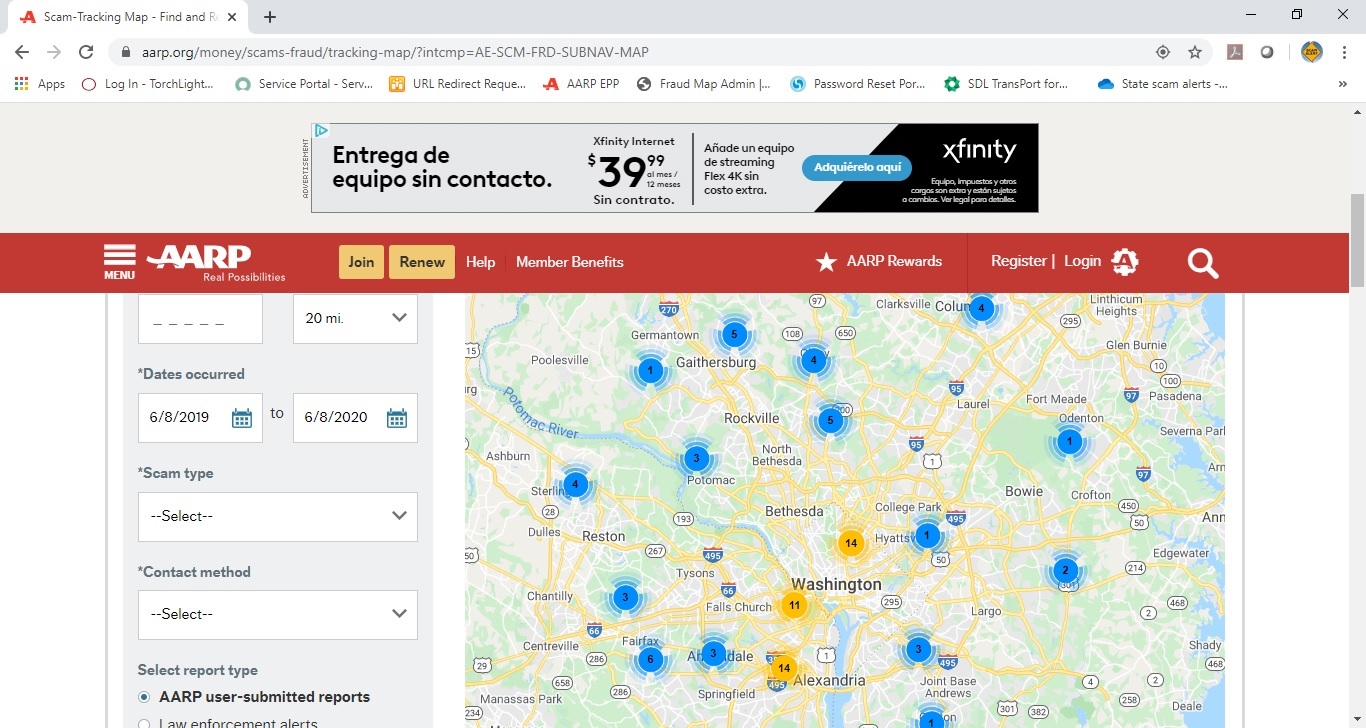AARP Hearing Center

Please note: if you think an advertisement seems a little fraudulent or you suspect you've been targeted by a scam, go with your gut. Call the AARP Fraud Watch Helpline- 1-877-908-3360, available 24/7. Your call can help other Massachusetts residents stay away from scams.
Welcome to the monthly update from the AARP Fraud Watch Network, where we will provide a brief overview of some of the latest scams plaguing the Bay State. Among them and as referenced above, there was a recent data leak for some who are enrolled in state run programs, including health care. Please click above or continue to scroll below to learn more about the latest scams and instances of fraudulent activity in Massachusetts.
Disaster & Disaster Charity Scams

As wildfire season moves closer to hurricane season, now is a good time to remind ourselves that when the dust clears out the criminal scammers tend to move in. Following extreme weather events, dubious contractors, fake charity websites and outright scammers descend on affected communities, offering quick, cheap fixes. They canvas neighborhoods in search of “work” that they may or may not even attempt to do. Many will specifically target older homeowners who they perceive as more likely to have savings. It’s safest to only trust contractors that you proactively reach out to. Also, regardless of who you are talking to, get written estimates and compare bids from multiple contractors before starting any work. Finally, pay no more than a third of the total cost prior to the work beginning – and then only when materials arrive.
Here are three ways to avoid criminal charity scams. Rather than respond immediately to donation requests, do some research. Look up the charity on sites such as CharityNavigator.org or CharityWatch.org to make sure that it is legitimate and that much of the funds raised goes to the organization versus overhead. Do your research and consider using a credit card when making your contribution — it’s easier to keep track of it, and if your card is misused, you have more loss protection than with other forms of payment.
IRS Scams

Criminals use a lot of different tactics to steal money from consumers, and one of those tactics is the promise of free money. This summer the Internal Revenue Service (IRS) is warning taxpayers to be on the lookout for a new scam mailing that tries to mislead people into believing the IRS owes them a refund. The new scheme involves a mailing that comes in a cardboard envelope from a delivery service. The enclosed letter includes the IRS masthead and wording that the notice is “in relation to your unclaimed refund.” The mailing asks recipients to call a number and includes a request for a long list of personal information including photos of their driver’s license, Social Security number and bank routing numbers. (We hear that driver’s licenses are now the hottest commodity on the Dark Web.)
The IRS warns against sharing your driver’s license or other personal information that criminals can use to file for a tax refund in your name. They also pointed out that the letter contains a variety of warning signs, including odd punctuation and a mixture of fonts and other inaccuracies.
These are just some of the scams that are targeting Massachusetts residents. Go to the AARP Fraud Watch Network for more resources and assistance, like the scam map that is shown below.
Resource-The Scam Map:

AARP Scam-Tracking Map. The map shows scams that people experience every day, and it also includes law enforcement warnings. You can submit scams you’ve encountered and explore what’s being reported in your geography.































































